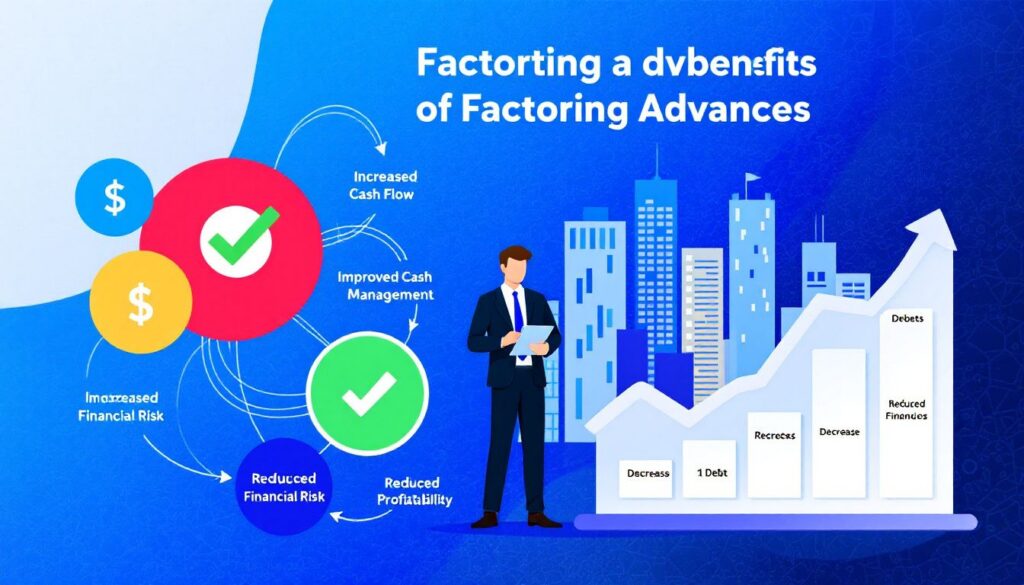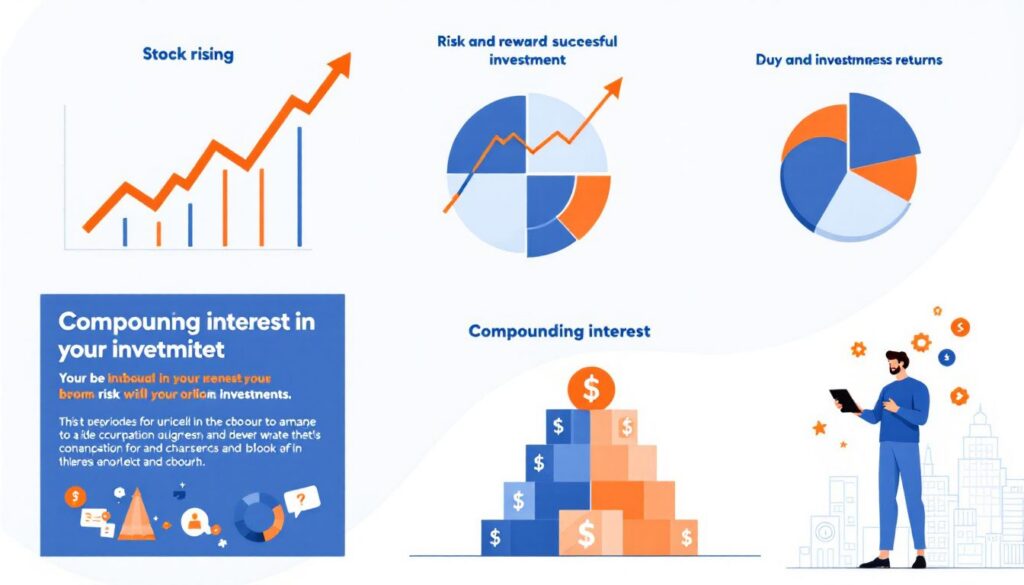What is an Invoice Factoring Advance?
Factoring advances turn your unpaid invoices into immediate cash. If delayed payments hurt your business, this article will show you how factoring cash advances works and how they can boost your cash flow with weekly advance payments.
Key Takeaways
- Factoring advances allow businesses to convert unpaid invoices into immediate cash, enhancing cash flow without incurring additional debt.
- By purchasing accounts receivable, Bankers Factoring company services can give you same-day working capital against 80-95% of the invoice value.
- Invoice financing turns outstanding invoices into working capital via same-day funding versus waiting for an extended due date.
- Have fast monies to cover payroll and business expenses as Bankers Factoring handles all the payment processing.
- An income statement and balance sheet are not required to get an advance against your invoices, but they can lower your factoring credit line rate.
- Customer creditworthiness, industry risk, and the invoice verification process influence the advance rates for factoring, which typically range between 70% and 90%.
- Choosing the right factoring company is crucial; businesses should consider the company’s reputation, fee structures, and industry-specific services to maximize benefits.
- Invoice factoring is cheaper than a merchant cash advance. MCAs have their own issues, and their only positive is a fast time frame.
Understanding Factoring Advances

Factoring advances are a financial solution where businesses sell their invoices to a factoring company in exchange for immediate cash. This practice, known as accounts receivable factoring, allows businesses to maintain smooth operations without waiting for customer payments. Unlike traditional loans, advance factoring focuses on turning invoices into cash, providing a lifeline for businesses experiencing cash flow issues and managing their accounts receivables effectively.
With working capital factoring, small businesses can meet their financial obligations on time and seize growth opportunities without worrying about delayed payments.
The Basics of Factoring Advances
A factoring advance payment is an upfront payment provided by Bankers Factoring company after purchasing a business’s invoices. Businesses convert unpaid invoices into immediate cash through this process, typically receiving between 70% and 90% of the invoice value as an advance. For example, if a business sells a $100 invoice and the advance rate is 80%, they receive an $80 advance. The remaining balance is held as a reserve until the customer pays the invoice.
Once the customer pays the invoice, the factoring company deducts a small fee and pays the remaining balance to the business. Factoring advances are an excellent way to ensure consistent cash flow, helping businesses cover operational expenses and invest in new opportunities. This liquidity can benefit small businesses that might otherwise struggle with delayed customer payments.
Difference Between Factoring Advance and Traditional Loans
Unlike traditional loans, which involve borrowing money based on credit, invoice factoring company advances allow businesses to receive immediate cash flow by selling their invoices. This means businesses are not taking on additional debt but converting their receivables into cash through a cash advance and utilizing receivable financing.
Considering the lost sales opportunities, the factoring process can be more cost-effective than traditional loans.
How Factoring Advance Rates Are Determined

The advance rate, typically between 70% and 90%, is influenced by various factors, including customer creditworthiness, industry risk, and specific agreement terms. Determining these rates is more complex than it seems. Businesses must understand the elements impacting these rates to make informed decisions.
These elements include the industry, customer creditworthiness, dilution rate, and the ease of the invoice verification process.
Industry Impact on Advance Rates
Different industries have varying levels of risk associated with them, impacting the advance rates offered. For instance, industries perceived as high-risk, such as those with high rates of invoice disputes or returns, often receive lower advance rates. On the other hand, industries with stable cash flows, like transportation and staffing, typically receive higher advance percentages, sometimes up to 95%.
Opting for a factoring company familiar with specific industries can significantly benefit businesses. These companies can offer tailored solutions that address the unique cash flow challenges of specific sectors, leading to better overall financial outcomes.
Specialized services align with the operational needs of each industry, enhancing the effectiveness of factoring solutions.
Customer Creditworthiness
Customer creditworthiness is a critical factor in determining advance rates. Factoring companies conduct thorough credit analyses to assess the risk of non-payment. A strong credit history of customers can lead to higher advance rates for businesses seeking factoring.
Automated credit scoring systems are often utilized to evaluate client creditworthiness, minimizing the risk of defaults.
Invoice Verification Process
The invoice verification process is crucial for confirming the authenticity of invoices, directly impacting the advance rates offered. Factoring companies employ various methods, such as online vendor portals, email communication, and phone calls to the accounts payable department. This thorough verification helps ensure the invoices are valid and reduces the risk of fraud and non-payment.
If an invoice cannot be verified, the factoring company will notify the client immediately to resolve the issue. The goal is to complete the verification process quickly, sometimes within a few hours, but depending on the complexity, it can take several days. This diligence ensures that all parties are protected and the factoring process runs smoothly.
Benefits of Factoring Advances

Factoring advances offer numerous benefits, including immediate cash flow, improved financial stability, and the advantage of not adding additional debt. These benefits can be game changers for businesses struggling with delayed payments and cash flow issues.
Immediate Cash Flow
One of the most significant advantages of factoring advances is the immediate access to cash. Selling unpaid invoices enables businesses to secure same-day funding. This quick access to capital allows businesses to manage daily expenses, invest in new opportunities, and maintain smooth operations.
Factoring advances are particularly beneficial for small businesses, which often face cash flow gaps due to delayed customer payments. A survey indicated that 62% of small businesses experience cash flow issues at least once a year, making factoring a crucial tool for maintaining operations. Seasonal businesses also leverage factoring advances to manage cash flow during off-peak periods, ensuring they can cover operational costs despite fluctuating revenues.
Many businesses have successfully utilized factoring advances to address cash flow challenges and achieve growth. Invoice factoring provides quick access to funds that can be used for operational costs, payroll, and purchasing materials.
Improved Financial Stability
Factoring advances contribute to long-term financial health by providing predictable cash inflow. By stabilizing cash flow, businesses can plan better financially and seize growth opportunities without incurring additional debt. This stability allows for more effective management of operations and investments.
Many businesses have utilized factoring advances as a strategic financial tool to overcome cash flow challenges, leading to significant growth and stability. Invoice factoring can stabilize cash flow and facilitate future growth planning.
No Additional Debt
One of the most appealing aspects of factoring advances is that they do not increase a company’s liabilities. Unlike traditional loans, factoring does not require collateral, thus keeping a company’s debt levels unchanged. This allows businesses to enhance liquidity without affecting their credit profile and convert receivables into cash without creating repayment obligations.
Challenges and Considerations

While invoice factoring advances offers numerous benefits, there are also challenges and considerations. Businesses must evaluate the costs and fees, manage customer relationships, and assess non-payment risk to ensure factoring aligns with their cash flow needs.
Costs and Fees
Factoring involves various costs and fees that businesses need to consider. High-concentration deals, where a significant portion of business comes from a few customers, can lead to higher costs. Factors like returned goods, bad debt write-offs, and offered discounts can also affect the dilution rate, impacting overall cash flow.
The reserve fund held by the factoring company is rebated back to the business once the customer pays the invoices, less any factoring fees.
Managing Customer Relationships
Factoring can alter the dynamics of customer relationships, necessitating careful management to maintain trust and satisfaction. Clear communication about the factoring process with customers helps mitigate misunderstandings and preserves relationships.
It is important to ensure that clients understand why they might be contacted by a factoring company, thus maintaining a positive relationship.
Risk of Non-Payment
Non-payment is a significant risk in factoring, but it can be managed effectively. Factoring companies conduct thorough credit analyses and hold reserves to protect against unpaid invoices. Non-recourse factoring provides bad debt protection by shifting credit risk to the factoring company, thereby reducing financial losses for businesses.
This arrangement ensures that the business does not bear the full brunt of the loss if a customer fails to pay.
Selecting the Right Factoring Company
Choosing the right factoring company is essential for maximizing the benefits of factoring advances. Businesses should evaluate the company’s reputation, understand its fee structures, and ensure it offers tailored services for specific industries.
Evaluating Reputation and Experience
When selecting a factoring company, it’s crucial to assess its reputation and experience. Look for companies with a proven track record in providing reliable services to businesses like yours.
Research customer reviews and industry ratings to ensure you choose a reputable partner.
Understanding Fee Structures
Understanding factoring companies’ fee structures is vital. Different fees, such as service fees, discount rates, and potential hidden charges, can impact the overall cost of factoring services.
Request a detailed breakdown of the factoring fee structure before entering into a factoring agreement to ensure transparent pricing.
Tailored Services for Specific Industries
Select a factoring company that offers services specifically designed for your industry. Industry-specific knowledge can lead to solutions that cater to your unique cash flow challenges, maximizing efficiency.
Verify that the company understands the unique challenges and regulations of your industry.
Case Studies: Success Stories with Factoring Advances

Real-life success stories can illustrate the transformative power of factoring advances. Businesses that employ factoring advances often experience improved financial stability and the ability to seize growth opportunities.
Small Business Growth
Factoring allows small businesses to convert their unpaid invoices into immediate cash flow, essential for growth. For instance, a small manufacturing company struggling with cash flow gaps used factoring to receive immediate funds, allowing them to invest in new equipment and hire additional staff. This move stabilized their operations and positioned them for significant growth.
Positive reviews and testimonials from other clients can provide valuable insights into the factoring company’s effectiveness. Small businesses can ensure better financial health and growth opportunities by choosing a reputable partner.
Managing Seasonal Demands
Seasonal fluctuations often create cash flow gaps for businesses, but factoring provides the necessary liquidity to manage increased orders during peak times. For example, a staffing agency leveraged factoring to smooth out cash flow during peak hiring seasons, ensuring timely payroll and operational efficiency.
By converting unpaid invoices into immediate cash, seasonal businesses can cover upfront costs during off-peak periods.
Summary
Factoring advances offer a powerful solution for businesses looking to improve cash flow, financial stability, and operational flexibility without incurring additional debt. By understanding how factoring works, the factors influencing advance rates, and the benefits and challenges involved, businesses can effectively make informed decisions to leverage factoring advances.
Selecting the right factoring company can enhance these benefits, ensuring tailored solutions that meet specific industry needs. Embrace factoring advances to transform your cash flow and drive your business to new heights.
Frequently Asked Questions
What is the primary benefit of invoice factoring for small business owners in Atlanta?
The primary benefit of invoice factoring for small business owners in Atlanta is that it provides immediate capital, facilitates effective cash flow management, and eliminates delays associated with customer payments.
How quickly can businesses receive funding through invoice factoring?
Businesses can receive funding through invoice factoring on the same day they sell their invoices, allowing them quick access to capital when needed.
How does invoice factoring help with business cash flow?
Invoice factoring enhances business cash flow by allowing companies to receive immediate payments on outstanding invoices. Thus, they ensure they have the necessary funds for operational expenses, payroll, and inventory purchases without waiting for client payments.
What distinguishes non-recourse factoring from recourse factoring?
Non-recourse factoring distinguishes itself by placing the risk of non-payment on the factoring company, thereby safeguarding the client from the consequences of bad debt. Conversely, in recourse factoring, the client remains responsible for repaying the factor if the customer defaults.
What key factors should businesses consider when selecting a factoring company?
Businesses should focus on the factoring company’s reputation, comprehend the fee structure, and evaluate its industry expertise to ensure a beneficial partnership. These factors are essential for making an informed selection.
